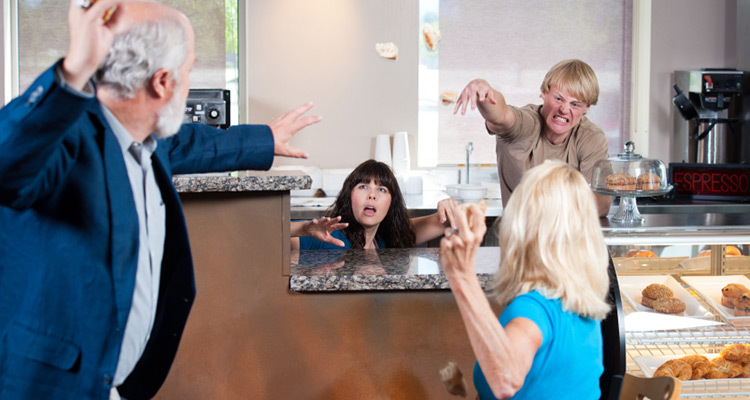3 Steps to Get Noticed by Your Local Video Game Community
As an indie developer, your local video game community can be a great ally in your quest for discovery. Why? Because local organizations have a vested interest in your success as a “local” developer, as well as established industry connections. (Not too shabby for a free resource you can leverage). Of course, it takes more than attending a meet-up to get the full help of the community–you have to get noticed. Here are three steps to get you noticed by your local video game community.
3 Steps to Get Noticed by Your Local Video Game Community
-
Become Aware
Awareness is the first step in becoming active in your community. (Without knowing what your options are, it’s impossible to begin getting involved). And the easiest way to become aware is online research.Start by searching for local game events and organizations. You’ll find a mix of smaller, independent events and organizations, as well as local chapters of larger organizations in your area. (If you’re having trouble finding events on Google, search the local chapter directories of organizations like the International Game Developers Association, Unity 3D Meet-up Groups, etc.).
Keep a list of the interesting events and organizations you find. Record each organization’s name, URL and contact information for its president, chapter leader, etc. This information will help you stay organized and reach out to get involved.
-
Get Involved
For many indies, getting involved translates to sporadically attending meet-ups and collecting a fat stack of business cards. This is NOT getting involved. In fact, it’s not even networking. Getting involved is much more…well…”involved.”To be truly involved with your local video game community, you need to do three things:
- Regularly attend meet-ups and events. This will afford you the opportunity to get to know others and become known yourself.
- Build relationships with game developers and other key members (president, chapter leader, etc.) of organizations. This may start with business cards, but doesn’t end there. Building relationships involves following up and maintaining regular on- and off-line communication.
- Participate in meet-ups and events. Go beyond just attending. Volunteer to help organize an event or secure a guest lecturer.
-
Get Noticed
With enough involvement in your local video game community, you’ll start to get noticed. Much of this happens organically as you build relationships, allowing the community to become familiar with you, your work and see you as a subject matter expert. You’ll start to get requests for high-profile involvement: presentations at meet-ups, participation at trade shows/events, interviews, etc. At this point, the local video game community is helping you with your discovery.
Leave a Comment
Only registerd members can post a comment , Login / Register




7 Comments
EgonGame
about 12 years agoI did not know that the promotion part has so much to do with real life. Thanks for the tips.
Emmy
about 12 years agoThanks for the comment. I'm not sure I know what you mean by "I do not know that the promotion part has so much to do with real life." Do you mind clarifying and I can try help answer any questions you may have?
http://www.8dl.ru/
about 11 years agowonderful insight. Really enjoyed skimming through this blog. Keep up the good work and to everyone keep on learning! Here is my web site free psn code generator no Surveys no download - http://www.8dl.ru/,
David Ngo
about 11 years agoGreat advice. The stock photo you used is so hilariously perplexing. Why are there people throwing bread at each other? And what does it have to do with your local video game dev community?
Emmy
about 11 years agoHa! Love this comment. The photos I choose for my posts are often related to the post's content in an abstract way. The intention here was to show someone getting someone else's attention. In the image, the people on one side of the counter are getting the other side's attention by throwing food at them. I would never advise an indie to go about throwing bread to get the attention of his/her local game community, but you catch my drift :)
Aris Klavins
about 11 years agoThis is great small blog about getting in touch with local game community, but do you have any material about how to get into gamers community in social networks like twitter? I have this question for a long time already as I am communicating with gamedev, game design and game art communities I am afraid that my real real target is gamers and I am not reaching them.
Emmy
about 11 years agoHi Aris. Thanks for the comment and great question! As a developer, reaching out and attracting the attention of other developers comes naturally. I.e., you find development interesting, talking about dev is easy and other developers take interest. The trick is making sure the content that you post is targeted toward your players. Content like this will not only attract the right kind of attention, but if it's posted regularly, will keep your audience coming back for more. To do this, I would first suggest identifying your target markets. Next, research where they go to consume media and what kind of media they like to consume. Finally, start creating the kind of media they like and reaching out to the right people. Here is an example: say I'm creating a cooking app. I identify that my app's primary target audience is women between the ages of 35 to 50. I research and find that women in my demographic follow Cooks Illustrated on Twitter and that the posts they engage with most are new recipes. With this research in hand, I post a blog detailing one of the recipes that comes with my cooking app and re-post it to my Twitter. Perhaps I tweet it at some of the women who follow Cooking Illustrated who I think may be interested in this recipe. Or perhaps, I take a more passive role and just follow these women in hopes they see the relevant content I'm posting about. Or, maybe I do both. Point is, you can see how identifying, researching and providing relevant content can really help build an audience of the right kind of people.